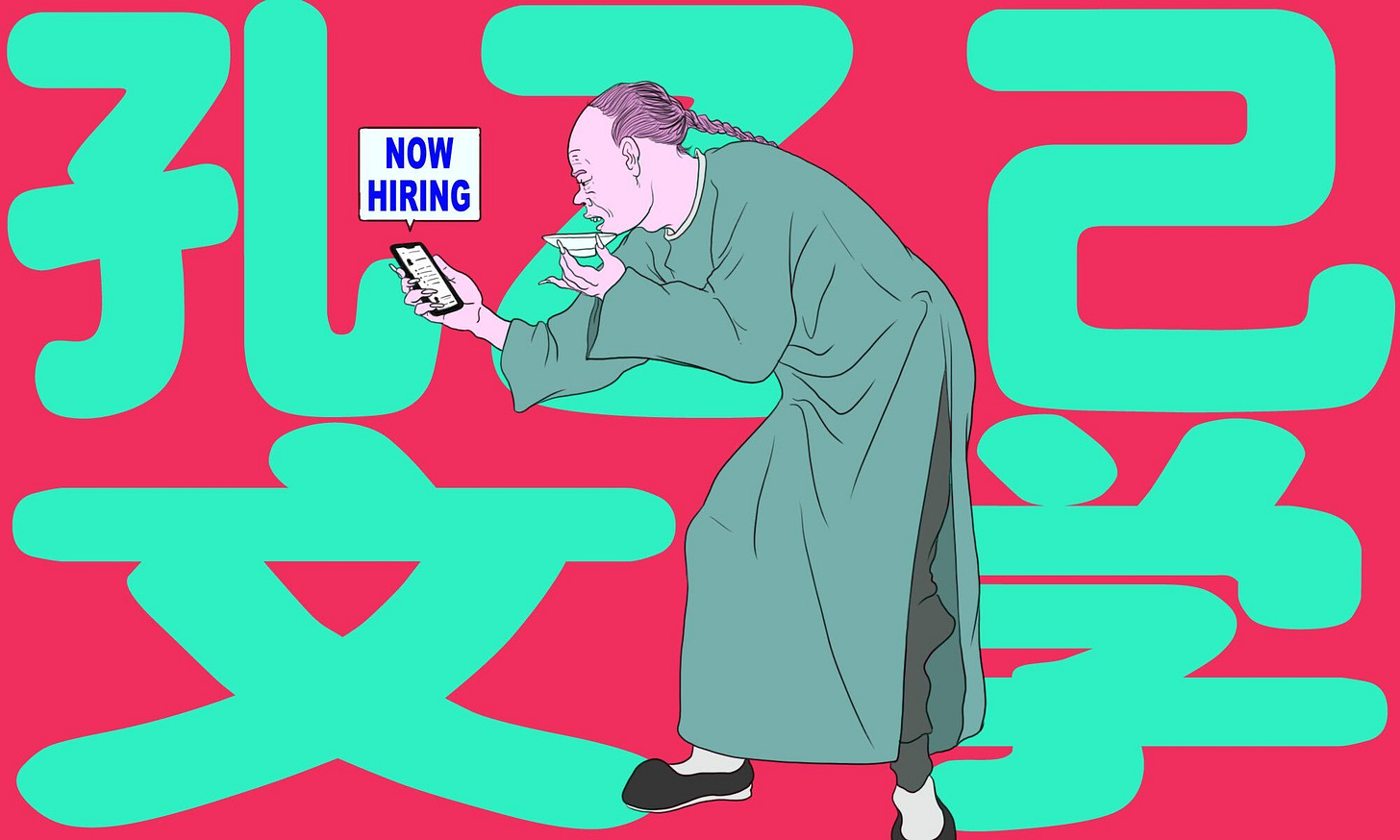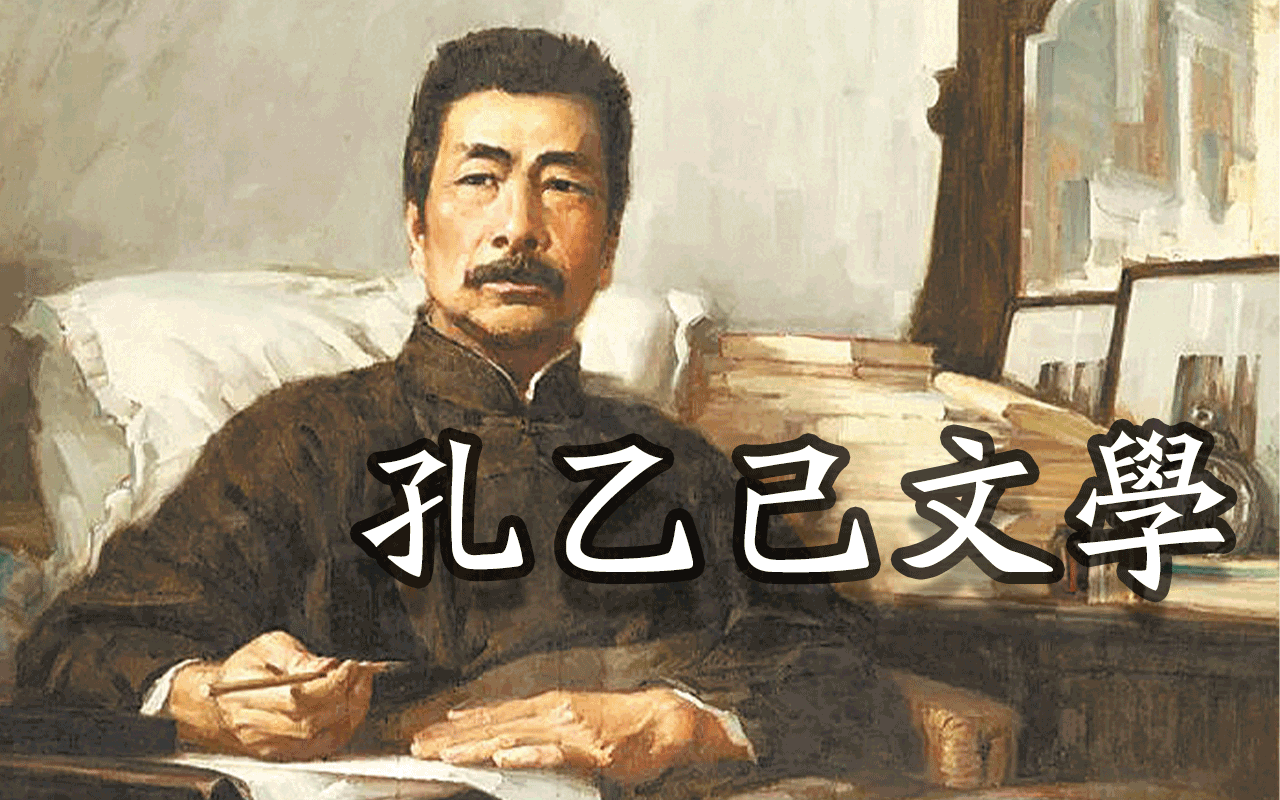Welcome to RealTime Mandarin—a multimedia resource to immerse you in the latest Chinese language trends, inspire you to practice and improve your Mandarin every week, and empower you to communicate with confidence.
Subscribe now to get the next issue straight to your inbox!
China’s last imperial regime was the Qing (1644-1911). Towards the end of Qing dynasty the government was corrupt and weak.
Poems, essays and stories from that time are still alive today. Some have evolved into metaphors about life in modern China.
We’ve learned a few in this newsletter:
Bumping porcelain 碰瓷 pèng cí - to extort, a reference to a corrupt military group who tricked passers-by out of their money;
Cutting braids 割辫子 gē biàn zi - to throw away restrictions of the imperial or feudal system;
Great Qing dynasty 大清 dà qīng - a regime that doesn't tolerate dissent, its people only allowed to say good things about government.
This week we learn another phrase about the late Qing dynasty, which first appeared in Call to Arms (呐喊 nà hǎn), a collection of 14 short stories published in 1923 by Lǔ Xùn 鲁迅.
The story is about Kǒng Yǐjǐ 孔乙己, a highly educated man who frequents a tavern in the fictional town of Lǔzhèn 鲁镇. Kong is a self-styled scholar who speaks in literary jargon that punters in the tavern only half understand.
He is a contradiction who the reader warms to, but pities and dislikes:
Kong Yiji is a scholar who never passed the national exams. He is also the only person in the Xianheng Tavern who drinks yellow rice wine standing up wearing a long gown. He behaves like a scholar, but he has no income and is not willing to do any menial work. He is impoverished and a laughing stock of the townspeople.
孔乙己是一个没有考上秀才的书生,也是咸亨酒店里站着喝酒而穿长衫的唯一的人,端着读书人的架子,却没有经济来源,也不愿意从事体力劳动赚钱,最终穷困潦倒,成为镇民的笑料。[2]
Kong’s long gown (长衫 cháng shān) is supposed to show his social status, but it is torn and dirty; he has no money so steals books rather than finding a job, but never defaults on payment at the tavern; he is drunk and angry, but wants to share his literary knowledge with the narrator of the story.
Through the sad character of Kong Yiji, Lu Xun is criticising China’s society under the feudal system.
The phrase, Kong Yiji Literature (孔乙己文学 Kǒng Yǐ jǐ wén xué), is a new term which has been trending on Chinese social media over the last few weeks.
Drawing from the character of Kong Yiji, the phrase describes a new kind of over-educated under-achiever: University graduates who are unable to land sought after high paid jobs, but are not willing to take jobs which are below their university education.
Last year alone saw a record 10.76 million people graduating from Chinese universities. For some of them, a university education is their "long gown", a burden holding them back as they start their careers:
Education is not only a stepping stone in my career, but also a high platform that I can't get off. It's like the long gown of Kong Yiji that he is unable to remove.
学历不但是敲门砖,也是我下不来的高台,更是孔乙己脱不下的长衫
This “long gown” of education reflects deeper issues in Chinese society:
Some people think that young people can't take off their long gowns because the current education system is too competitive, and while they have invested a lot in their education, they don't get the earnings they deserve, which doesn't match the expectations of their family or society.
有人认为,年轻人脱不下长衫,是目前教育太卷,付出的教育投入代价太大了,却没有得到应有的收入,与家庭及社会的期待值不相符。 [2]
So that’s what we explore this week!
Favourite Five
1. 丧 sàng
despair
这种玩法互动性强,手法略显夸张,有时候显得非常“丧” - Writing these kinds of posts can generate a lot of engagement. The content is slightly exaggerated and sometimes quite pessimistic. [1]
More: Sang Culture (丧文化 sàng wénhuà) - a youth subculture related to young people feeling a sense of despair.
Related: 颓丧 tuí sàng - depressed
2. 荆棘 jīng jí
thorns; challenges
人生布满了荆棘,我们想的唯一办法是从那些荆棘上迅速跨过 - Life is full of challenges. The only way to overcome them is to get through them quickly. [1]
Related: 披荆斩棘 pī jīng zhǎn jí - overcome obstacles
3. 眼高手低 yǎn gāo shǒu dī
high sighted, low handed; someone who has high standards or expectations but is unable to achieve them in reality
现在的年轻人找不到工作就是因为眼高手低,自命清高,不肯努力或是太懒所致 - Young people today can't find a job because they are over-ambitious, arrogant, unwilling to work hard, or too lazy. [2]
Related: 高开低走 gāo kāi dī zǒu - decline from a high starting point
4. 孔乙己文学 kǒng yǐ jǐ wén xué
Kong Yiji Literature
“孔乙己文学”成了3月最热的全民话题,在微博、小红书、豆瓣、抖音、朋友圈......疯狂刷屏" - Kong Yiji Literature" became the hottest topic on social media in March. The phrase has gone viral on Weibo, Xiaohongshu, Douban, Douyin, and WeChat. [3]
Note: Literature (文学 wénxué) is an internet slang term which translates as "-ism", such as in "talking rubbish-ism" (废话文学 fèihuà wénxué).
More: See The China Project’s Phrase of the Week for more!
5. 高不成低不就 gāo bù chéng dī bú jiù
be unfit for a higher post but unwilling to take a lower one
有些看起来不需要太高学历的工作,又放不下身段去做,最后高不成低不就,陷入了困顿与尴尬 - Those well-educated are too proud to take jobs that don't require a university education. In the end, they are trapped in a dilemma as they can't get the good jobs they want, and are unwilling to take a lower one. [2]
More: 身段 shēn duàn - posture, social status
Consuming the Conversation
Useful words
6. 迂腐 yū fǔ
pedantic, resistant to new ideas
孔乙己的形象是善良、迂腐、穷酸、爱面子。鲁迅先生曾说,孔乙己是酒馆里唯一一个站着喝酒还穿长衫的人 - Kong Yiji is characterised as someone who is kind, pedantic, poor, and loves face. According to Lu Xun, he is the only one in the tavern who drinks yellow rice wine standing up wearing a long scholar’s gown. [1]
7. 苦闷 kǔ mèn
depressed
说的是念了大学,却找不到心仪工作的困顿和苦闷 - Although they have a university degree, they feel depressed and stuck because they cannot find the job they want. [1]
8. 低贱 dī jiàn
disreputable
宁愿去偷,也不愿意去做他以为的低贱的赚钱的事 - He would rather steal than lower himself to make money through disreputable means. [1]
9. 落魄 luò pò
spiritless; living in poverty
落魄的孔乙己穿着又脏又破的长衫被人嘲笑,固执地将读书人的身份进行到底 - The down and out Kong Yiji is ridiculed for wearing his dirty and tattered long scholar’s gown. Despite that, he projects himself as a scholar to the very end. [1]
10. 困顿 kùn dùn
trapped
当一批失落的年轻人正困顿于长衫时,一批孔乙己决定脱下长衫 - When one group of lost young people were trapped in their long gowns, another group of Kong Yijis decided to take them off. [2]
More: 困顿 as an adjective is usually about economic hardship (livelihood); whereas 困难 (usually an adjective and a noun) describes difficulties, hardships, or problems in general.
11. 枷锁 jiā suǒ
shackles
长衫是衣服,更是心头枷锁 - A long gown is an item of clothing, but it’s also a limiting factor. [1]
Related: 桎梏 zhì gù - shackles
Three-character phrases
12. 挂路灯 guà lùdēng
lynch of the rich by the poor
中文互联网上一度最火的一种口号就是“资本家挂路灯” - One of the most popular slogans on the Chinese Internet was "lynch the capitalists". [2]
More: Originally a political slogan from the French Revolution (“À la lanterne”) meaning to hang the victim from a lamppost. In Chinese internet slang it’s a criticism directed at capitalists.
13. 敲门砖 qiāo mén zhuān
door step; stepping stone















